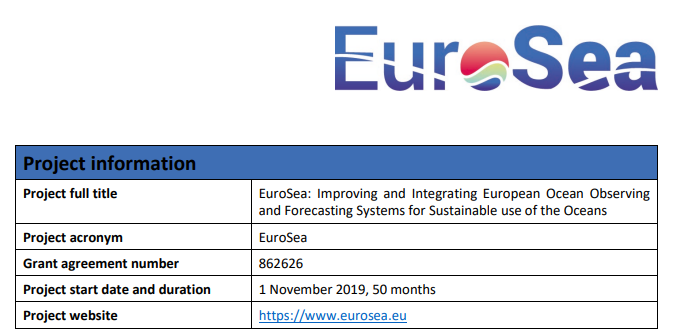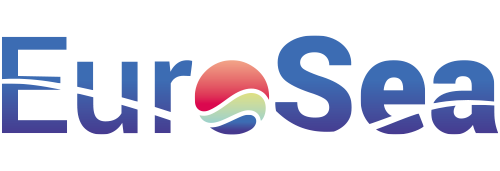
Description
The EuroSea Data Handbook serves as a comprehensive guide detailing the methodologies, protocols, and standards related to data within the EuroSea initiative.
Impact During the Project
Standardized Data Protocols:
Traditional State: Without a centralized guide or handbook, data practices might vary among different researchers or institutions involved in the EuroSea initiative, leading to inconsistencies.
Advancement: The EuroSea Data Handbook provides a standardized set of guidelines and protocols, ensuring uniformity in how data is handled across the initiative. This promotes data reliability and reduces discrepancies arising from varied methodologies.
Enhanced Data Quality:
Traditional State: In the absence of clear guidelines, the quality of data could be inconsistent, with some datasets potentially suffering from inaccuracies or incomplete records.
Advancement: By outlining quality control measures and best practices, the handbook ensures that data generated or processed under the EuroSea initiative meets high-quality standards, making it trustworthy for researchers and stakeholders.
Impact Post Project
Facilitated Collaboration and Research:
Traditional State: Discrepancies in data handling methodologies could pose challenges when collaborating on joint projects or integrating datasets from different sources.
Advancement: With standardized data protocols, researchers and institutions can seamlessly collaborate, combining datasets and insights without the hurdles of data compatibility issues. This promotes interdisciplinary research and wider project collaborations.
Legacy for Future Projects:
Traditional State: Each new initiative or project might need to define its own data guidelines, leading to a recurring challenge of establishing data norms.
Advancement: The EuroSea Data Handbook can serve as a benchmark for future marine research projects, providing a tried-and-tested template for data management. This can reduce the lead time for new initiatives and ensure that they benefit from the best practices established by EuroSea.
Advancement over and above State of the Art
The introduction of the EuroSea Data Handbook marks a significant step towards centralizing and standardizing data-related practices within the realm of marine research. By addressing the challenges of data inconsistencies, quality control, and collaborative hurdles, the handbook stands as a testament to the importance of structured data management in modern research.
It not only enhances the immediate impact of the EuroSea initiative but also paves the way for future projects, emphasizing the principle that robust research is built on the foundation of reliable and standardized data practices.
Links and References
Link to D3.13 – EuroSea data handbook: https://eurosea.eu/download/eurosea_d3-13_eurosea_data_handbook/?wpdmdl=5544&refresh=650197c725fe51694603207
